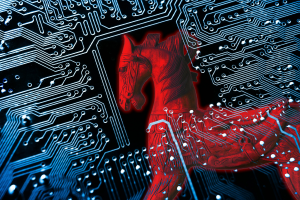To celebrate the recent victory of the Tunisian Islamist party, the French satirical magazine “Charlie Hebdo” published a special issue in which it named the prophet Muhammad (also spelled Mohammad) as its editor-in-chief. Late night, the magazine’s offices in Paris were destroyed by a Molotov cocktail attack. The entire French political establishment has condemned this barbarian act. At the same time, the “Charlie Hebdo” website was twice defaced.
Who is Akincilar?
First, “Akincilar” hacked the site, claiming to do it “for Islam.” The defaced page contained messages in both English and Turkish. One said: “You keep abusing Islam’s almighty Prophet with disgusting and disgraceful cartoons using excuses of freedom of speech.”
Akincilar is a well-known hacker/defacer. He ranks eighteenth, with 2,742 attacks, in the TOP-20 Turk-h.org list. The logo at the bottom of the image refers to the Turkish Cyber-Warrior group, of which Akincilar is a member.
The second attack has been attributed to “Mn9,” another Middle-Eastern hacker, perhaps from Tunisia. This defaced page is also well-known, and has appeared in many hacks by various hackers.
Neither Akincilar nor Mn9 claimed any responsibility for the attack on “Charlie Hebdo’s” building. It seems unlikely that the physical and the Internet attacks are linked.
These attacks demonstrate that the enemies of freedom of speech and of the press are numerous: on the web as well as in real life.














